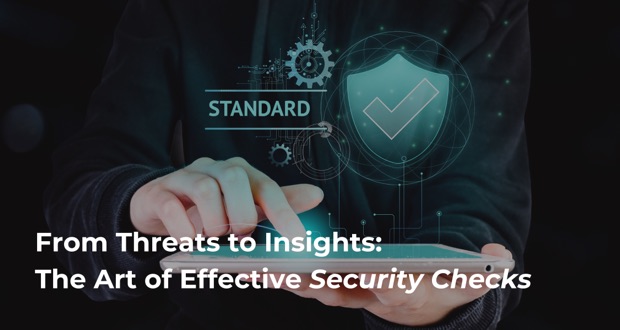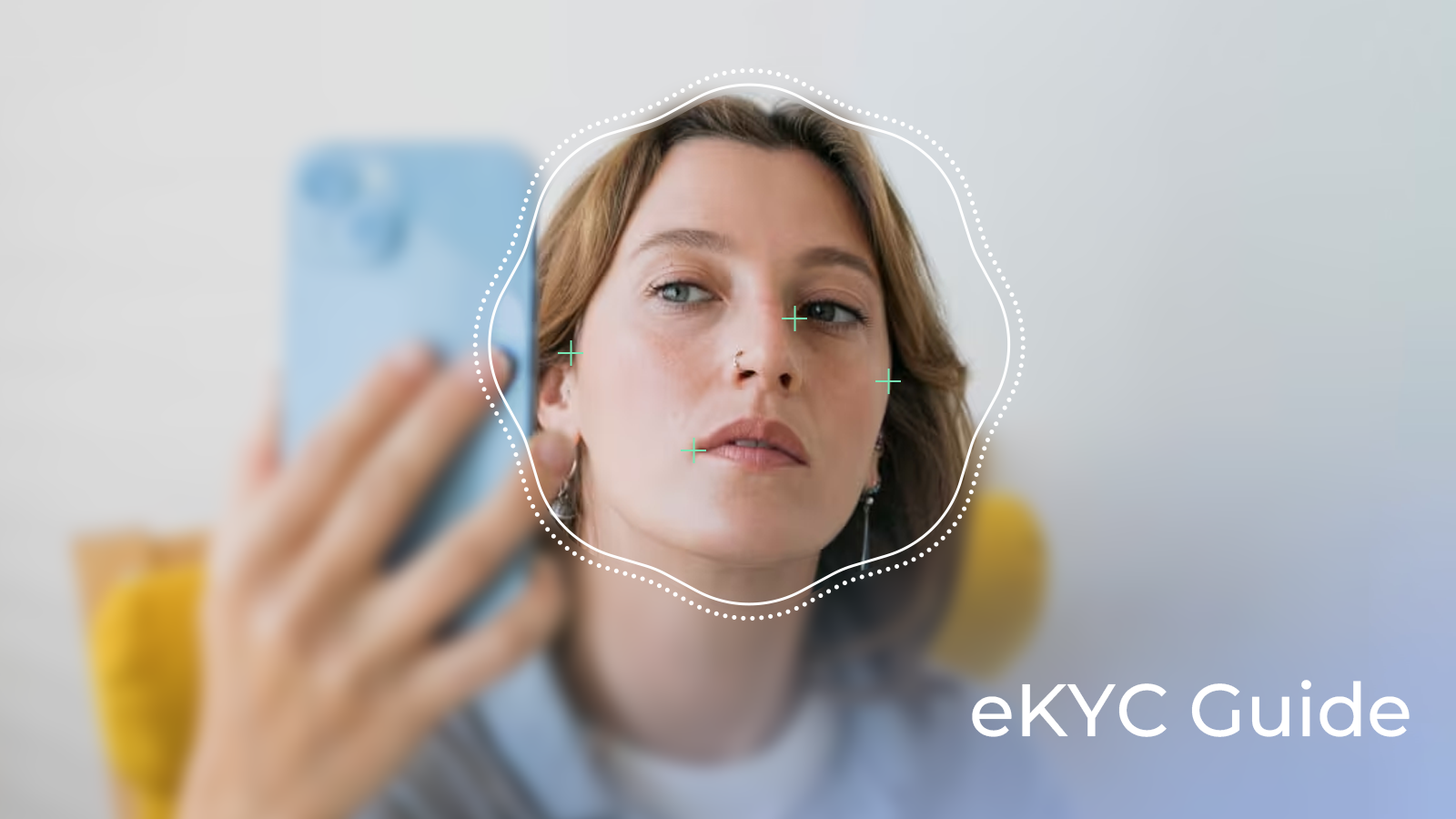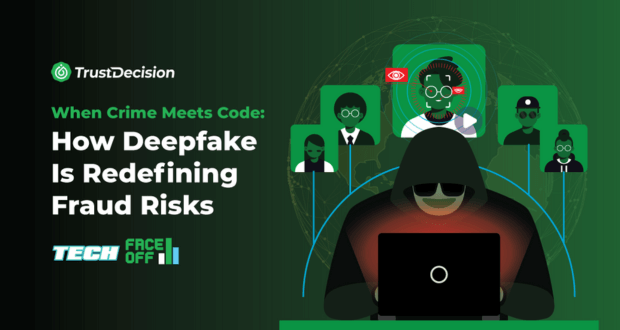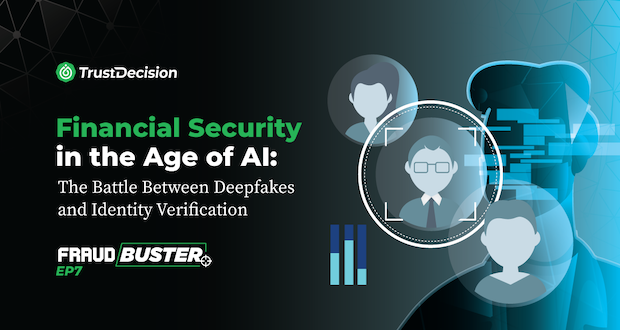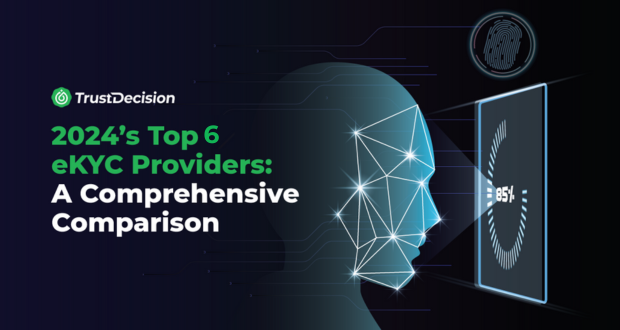Introduction
Understanding the Importance of Security Checks
In an era where digital transformation is reshaping industries, the importance of robust security checks cannot be overstated. Security checks serve as the first line of defense against a myriad of threats, including fraud, identity theft, and cyber-attacks. For business, understanding the nuances of effective security checks is crucial for safeguarding sensitive information and maintaining trust with stakeholders.
Security checks encompass a wide range of practices and technologies designed to verify the authenticity of users, protect data, and ensure compliance with regulatory standards. From simple password policies to advanced biometric authentication systems, these measures are integral to a comprehensive risk management strategy. As cyber threats become increasingly sophisticated, the need for proactive and thorough security checks has never been more critical.
Key Examples: Google and Government Security Checks
To illustrate the significance of security checks, let's consider two prominent examples: Google Account Security Checkup and Government Employee Security Checks.
Google Account Security Checkup: Google has set a benchmark for user account security with its comprehensive Security Checkup tool. This feature allows users to review and enhance the security of their Google accounts by providing actionable recommendations. It includes checking for compromised passwords, enabling two-factor authentication, and reviewing account activity. By offering a user-friendly interface and clear guidance, Google empowers individuals to take control of their digital security and prevent potential security breaches.
Government Employee Security Checks: In the public sector, security checks are paramount to ensuring the safety and trustworthiness of government employees. These checks often involve rigorous background investigations, including criminal history, financial status, and previous employment verification. The goal is to prevent insider threats and ensure that individuals in sensitive positions are reliable and trustworthy. Government security checks are a critical component of national security, helping to protect against espionage, corruption, and other malicious activities.
TrustDecision: A Leader in Security Checks
When it comes to implementing effective security checks, TrustDecision stands out as a leader in the field. TrustDecision offers a suite of advanced security solutions designed to meet the diverse needs of businesses across various industries. By leveraging cutting-edge technologies such as high-performing OCR and face comparison, TrustDecision provides comprehensive security checks that are both thorough and efficient.
TrustDecision's platform is designed to address the unique challenges faced by modern businesses. Whether it's preventing fraud, conducting employee screenings, or ensuring compliance with industry regulations, TrustDecision delivers tailored solutions that enhance security without compromising user experience. Their commitment to innovation and excellence has made them a trusted partner for organizations seeking to fortify their security posture.
Why Effective Security Checks are Essential
Preventing Fraud and Identity Theft
In today's digital age, the threat of fraud and identity theft looms large over businesses and individuals alike. Effective security checks are a cornerstone of fraud prevention strategies, helping to identify and mitigate risks before they escalate into full-blown security breaches. By implementing robust security checks, organizations can verify the authenticity of users, detect suspicious activities, and protect sensitive information from unauthorized access.
For instance, integrating Credit Report Monitoring into your security framework can provide an additional layer of protection. Regular monitoring of credit reports helps identify unusual activities that may indicate identity theft, allowing for swift action to prevent further damage. This proactive approach is essential for maintaining the integrity of financial transactions and safeguarding personal information.
Employee Screening and Checks
Employees are often the first line of defense against security threats, making thorough employee screening and checks a critical component of any security strategy. Conducting comprehensive background checks during the hiring process can help identify potential risks, such as criminal history or financial instability, that could compromise the organization's security.
Security inspections and regular audits of employee activities can further enhance security by ensuring compliance with internal policies and industry regulations. For example, a security bank check sample can be used to verify the authenticity of financial transactions conducted by employees, reducing the risk of internal fraud. By maintaining a vigilant approach to employee screening and checks, businesses can foster a secure work environment and mitigate the risk of insider threats.
High Security Checks for Maximum Protection
High security checks are essential for organizations that handle sensitive information or operate in high-risk industries. These checks go beyond standard security measures, incorporating advanced technologies and rigorous protocols to provide maximum protection against sophisticated threats.
For example, implementing multi-factor authentication (MFA) and biometric verification can significantly enhance security by adding multiple layers of defense. Regular security inspections and audits ensure that security measures remain effective and up-to-date, adapting to the evolving threat landscape. Additionally, leveraging advanced technologies such as artificial intelligence and machine learning can help identify and respond to potential security breaches in real-time.
In the financial sector, high security checks are particularly crucial. Utilizing a security bank check can help verify the legitimacy of transactions and prevent fraudulent activities. By adopting a comprehensive approach to security, businesses can protect their assets, maintain customer trust, and ensure compliance with regulatory requirements.
The Art of Conducting Thorough Security Checks
A. Implementing Best Practices for Comprehensive Protection
Conducting thorough security checks is an art that requires a blend of best practices, advanced technologies, and continuous improvement. By implementing these best practices, businesses can create a robust security framework that mitigates risks and protects against potential threats.
Multi-Factor Authentication (MFA)
Multi-Factor Authentication (MFA) is a critical component of modern security strategies. MFA requires users to provide two or more verification factors to gain access to a system, significantly reducing the risk of unauthorized access. By combining something the user knows (password), something the user has (security token), and something the user is (biometric verification), MFA provides an additional layer of security that is difficult for cybercriminals to bypass.
Implementing MFA across all critical systems and applications can prevent security breaches and protect sensitive information. This practice is especially important for high-risk areas such as financial transactions and access to confidential data. By incorporating MFA into your security checks, you can enhance the overall security posture of your organization and reduce the likelihood of successful cyber-attacks.
Regular Security Audits
Regular security audits are essential for identifying vulnerabilities and ensuring that security measures are effective and up-to-date. These audits involve a comprehensive review of the organization's security policies, procedures, and technologies to identify potential weaknesses and areas for improvement. By conducting regular security inspections and audits, businesses can proactively address vulnerabilities before they are exploited by cybercriminals.
Security audits should include a thorough examination of all aspects of the organization's digital infrastructure, including network security, application security, and physical security. Utilizing a security bank check sample can help verify the legitimacy of financial transactions and ensure compliance with industry standards. Regular audits also provide an opportunity to review and update security policies, ensuring that they remain relevant and effective in the face of evolving threats.
Employee Training and Awareness Programs
Human error is often the weakest link in security, making employee training and awareness programs a critical component of any security strategy. By educating employees about the latest security threats, best practices, and company policies, businesses can reduce the risk of security breaches caused by human error.
Training programs should cover a wide range of topics, including password management, phishing awareness, and the importance of regular security checks. Employees should also be trained on how to recognize and report suspicious activities, such as unauthorized access attempts or unusual financial transactions. Incorporating real-world scenarios and hands-on exercises can enhance the effectiveness of training programs and ensure that employees are well-prepared to respond to potential threats.
In addition to initial training, businesses should conduct regular refresher courses and provide ongoing education to keep employees informed about new threats and security practices. By fostering a culture of security awareness, organizations can empower their employees to play an active role in fraud prevention and fraud risk management.
B. Tailoring Security Checks to Suit Different Industries
Different industries face unique security challenges and regulatory requirements, necessitating tailored security checks to ensure comprehensive protection. By customizing security measures to suit the specific needs of each industry, businesses can enhance their security posture and ensure compliance with relevant standards.
Customizing Checks for Financial Services
The financial services industry is a prime target for cybercriminals due to the high value of financial data and transactions. Customizing security checks for this sector involves implementing stringent measures to protect against fraud and ensure the integrity of financial operations.
Security Bank Check Sample: Utilizing a security bank check sample can help verify the authenticity of financial transactions and detect potential fraud. This practice involves cross-referencing transaction details with known patterns of legitimate activity to identify discrepancies and suspicious behavior.
Multi-Factor Authentication (MFA): Implementing MFA is crucial for securing access to financial systems and sensitive data. By requiring multiple forms of verification, MFA significantly reduces the risk of unauthorized access and protects against identity theft.
Credit Report Monitoring: Integrating Credit Report Monitoring into security checks can help detect unusual financial activities and prevent fraud. Regular monitoring of credit reports allows financial institutions to identify and address potential threats before they escalate.
Adapting Security Measures for Healthcare
The healthcare industry handles sensitive patient data, making it a critical target for cyber-attacks. Adapting security measures to protect electronic health records (EHRs) and ensure compliance with healthcare regulations is essential for maintaining patient trust and safeguarding confidential information.
Data Encryption: Encrypting patient data both at rest and in transit is a fundamental security measure for healthcare organizations. Encryption ensures that even if data is intercepted, it remains unreadable and secure.
Access Controls: Implementing strict access controls is vital for protecting patient data. Role-based access control (RBAC) ensures that only authorized personnel can access sensitive information, reducing the risk of data breaches.
Regular Security Inspections: Conducting regular security inspections and audits helps identify vulnerabilities and ensure compliance with healthcare regulations such as HIPAA. These inspections should include a thorough review of security policies, procedures, and technologies to ensure they are effective and up-to-date.
Industry-Specific Compliance and Regulatory Requirements
Different industries are subject to various compliance and regulatory requirements that dictate specific security measures. Tailoring security checks to meet these requirements is essential for avoiding legal repercussions and maintaining industry standards.
Financial Services: Financial institutions must comply with regulations such as the Gramm-Leach-Bliley Act (GLBA) and the Payment Card Industry Data Security Standard (PCI DSS). Security checks should include measures to protect customer data, secure financial transactions, and ensure compliance with these standards.
Healthcare: Healthcare organizations must adhere to regulations such as the Health Insurance Portability and Accountability Act (HIPAA). Security checks should focus on protecting patient data, ensuring data privacy, and maintaining compliance with HIPAA requirements.
Retail: Retail businesses must comply with PCI DSS to protect payment card information. Security checks should include measures to secure point-of-sale (POS) systems, encrypt payment data, and monitor for suspicious activities.
C. Leveraging Advanced Technologies for Enhanced Security
Incorporating advanced technologies into your security framework can significantly enhance your ability to conduct thorough security checks and protect against sophisticated threats. By leveraging cutting-edge solutions such as artificial intelligence, blockchain, and biometric authentication systems, businesses can stay ahead of potential security breaches and ensure comprehensive protection.
1. Artificial Intelligence and Machine Learning
Artificial Intelligence (AI) and Machine Learning (ML) are revolutionizing the way businesses approach security checks and fraud prevention. These technologies can analyze vast amounts of data in real-time, identifying patterns and anomalies that may indicate a security breach or fraudulent activity.
Fraud Risk Management: AI and ML can enhance fraud risk management by continuously monitoring transactions and user behavior. These technologies can detect unusual patterns that deviate from normal behavior, allowing for immediate investigation and intervention. For example, AI can analyze a security bank check sample to identify discrepancies and potential fraud.
Predictive Analytics: AI and ML can also be used for predictive analytics, helping businesses anticipate and mitigate potential security threats before they occur. By analyzing historical data and identifying trends, these technologies can provide actionable insights that inform proactive security measures.
Automated Security Checks: AI-powered systems can automate routine security checks, such as vulnerability assessments and compliance audits. This automation not only increases efficiency but also ensures that security measures are consistently applied and up-to-date.
2. Blockchain for Secure Transactions
Blockchain technology offers a secure and transparent way to conduct transactions, making it an invaluable tool for industries that require high levels of trust and security. By leveraging blockchain, businesses can enhance the integrity and security of their transactions.
Immutable Ledger: Blockchain's decentralized and immutable ledger ensures that once a transaction is recorded, it cannot be altered or tampered with. This feature provides a high level of security and transparency, making it ideal for financial transactions and supply chain management.
Smart Contracts: Smart contracts are self-executing contracts with the terms of the agreement directly written into code. These contracts automatically execute and enforce the terms when predefined conditions are met, reducing the risk of fraud and ensuring compliance.
Secure Financial Transactions: Blockchain can be used to secure financial transactions by providing a transparent and tamper-proof record of all activities. This technology can be integrated into security bank checks to verify the authenticity of transactions and prevent fraud.
3. Biometric Authentication Systems
Biometric authentication systems use unique physical characteristics, such as fingerprints, facial recognition, and iris scans, to verify identity. These systems provide a high level of security by ensuring that only authorized individuals can access sensitive information and systems.
Enhanced Security: Biometric authentication adds an additional layer of security that is difficult to replicate or bypass. Unlike passwords or tokens, biometric data is unique to each individual, making it a highly reliable form of authentication.
User Convenience: Biometric systems offer a convenient and user-friendly way to authenticate identity. Users can quickly and easily verify their identity without the need to remember complex passwords or carry physical tokens.
Integration with Security Checks: Biometric authentication can be integrated into various security checks, such as access control systems and financial transactions. For example, a security bank check can incorporate biometric verification to ensure that only authorized personnel can approve and execute transactions.
Conclusion
The Power of Proactive Security Measures
In today's rapidly evolving digital landscape, the importance of proactive security measures cannot be overstated. By implementing comprehensive security checks, businesses can stay ahead of potential threats and prevent security breaches before they occur. Proactive measures such as Multi-Factor Authentication (MFA), regular security audits, and employee training programs are essential for creating a robust security framework that protects sensitive information and ensures compliance with industry standards.
Proactive security measures also play a crucial role in fraud prevention and fraud risk management. By continuously monitoring for unusual activities and potential vulnerabilities, businesses can swiftly address issues and mitigate risks. Whether it's through regular security inspections, utilizing a security bank check sample, or integrating advanced technologies like artificial intelligence and blockchain, a proactive approach to security is essential for safeguarding your organization.
Ensuring Peace of Mind with TrustDecision
TrustDecision stands out as a leader in providing advanced security solutions tailored to the unique needs of businesses across various industries. By leveraging cutting-edge technologies and best practices, TrustDecision offers comprehensive security checks that enhance protection without compromising user experience. Their commitment to innovation and excellence ensures that businesses can trust their security measures to be both effective and efficient.
With TrustDecision, businesses can achieve peace of mind knowing that their security posture is fortified against potential threats. From fraud prevention to compliance with regulatory requirements, TrustDecision's solutions are designed to address the diverse challenges faced by modern organizations. For more information on how TrustDecision can help your business achieve robust security, visit TrustDecision.

